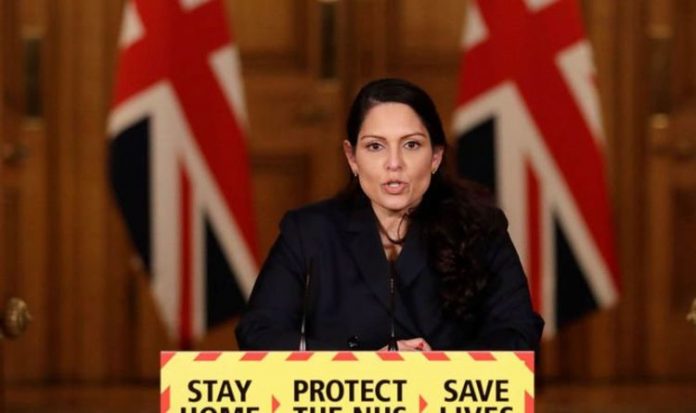Asked what advice she would give to people thinking about overseas holidays and whether they should book or wait, Ms Patel told the Commons Home Affairs Committee: “Well, it’s too early. It’s far too early. “It is too early and we have to look at the data at every single stage, and the road map outlined by the Prime Minister makes that abundantly clear.” She urged everyone to follow current restrictions while the vaccine rollout continues, referring to the four tests the Government has said need to be met before restrictions can be lifted.
Mr Johnson said on Monday that a Government taskforce will produce a report by April 12 recommending how international trips can resume for people in England.
Foreign holidays could be permitted from May 17.
In the hours after the announcement, easyJet said bookings by UK customers for the summer season were more than four times higher compared with the same period during the previous week.
The Luton-based firm’s holiday division saw an even larger rise, with demand up seven-fold.
The most popular destinations for this summer are beach resorts including Malaga, Alicante and Palma in Spain, Faro in Portugal, and the Greek island of Crete.
August is the most booked month, followed by July and September.
Paul Lincoln, director-general of Border Force, told MPs on the committee that more than 100 people a day are going into quarantine hotels.
He said: “In broad terms, there are about 14,000 or 15,000 people coming in to the country on any given day – that is now about 95% down from what we would have seen at this time routinely in previous years.”
Mr Lincoln added that “about a third or more” of them would be hauliers and about a third of those are British citizens.
Among the 15,000 people who have come in, “only 100 or so people per day” are going into hotels.
He said there are around 1,100-1,200 people currently in the managed quarantine service hotels.
Travellers arriving in England must quarantine in a hotel if they have been in a country at high risk of coronavirus variants in the previous 10 days.
Scotland has extended the requirement to cover arrivals from any country unless they have travelled from the Common Travel Area (CTA), which includes the UK and Ireland.
Guests are allowed to leave after 11 nights if they receive negative results from tests taken on day two and day eight of their isolation.
A positive result from the first test will extend a traveller’s stay by two nights.







